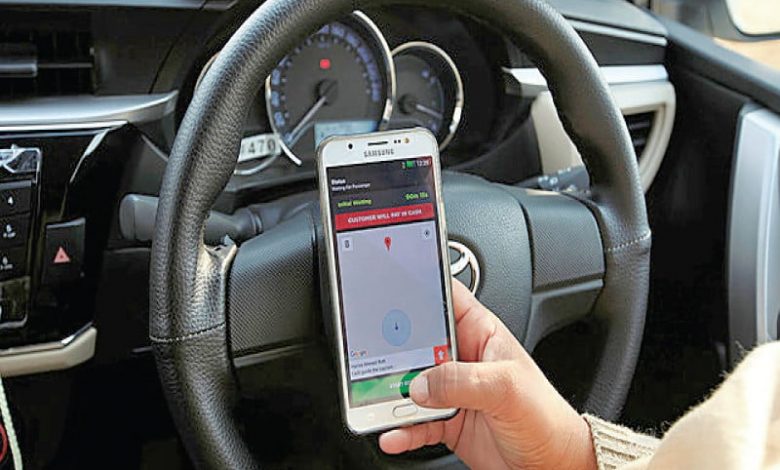Ride-hailing firms eye exclusive SOPs

KARACHI:Operating as Online Marketplaces (OMPs), transportation service providers with technology companies, have demanded that the government ensure proper regulations for the emerging ride-hailing industry. They advocate for standard practices, reasonable taxation, and fair competition, alongside revamping broken road infrastructure. These measures would benefit both customers or users and service providers.
The ride-hailing services industry has been gaining momentum for several reasons, notably the significant increase in the cost of owning and maintaining a car in Pakistan. The public transportation ecosystem is unfortunately inadequate, leaving a need for safe, reliable, and convenient commuting options as people navigate daily travel.
OMPs offer a seamless mobility experience for customers while creating economic opportunities for drivers-cum-riders, known as captains. As transportation service providers, they advocate for policies promoting road safety, infrastructure improvement, and a conducive environment for business growth. Prioritising these areas would enhance the overall mobility experience for locals and support the transportation industry’s growth.
Through app-based platforms or e-commerce sites, service providers offer a range of services, including ride-hailing, intercity transportation, carpooling, mass commute, motorbike, rickshaw taxi, freight, instant delivery, and courier services.
People are increasingly opting for ride-hailing services provided by OMPs like Careem, Uber, Bykea, inDrive, and Yango due to trust, safety, and comfort.
App-based platforms offer several safety advantages over traditional phone-based bookings. Customers can easily book rides from their homes, track their ride in real-time, share trip details for added security, and access features like driver ratings and emergency assistance.
A spokesperson for Careem stated, “We are pioneers of ride-hailing services in Pakistan. We understand Pakistan is a market with safety challenges, hence we never compromise on customer and captain safety. We have a comprehensive approach, beginning with rigorous background checks on all captains, ensuring only trusted individuals join our platform.”
The company boasts 50 million customers across the region, with over 12.5 million in Pakistan and 2.5 million captains across the region, including 820,000 in Pakistan. Careem has paid out $4 billion in earnings to its captains, with $500 million in Pakistan.
It offers a variety of product offerings from low-cost to premium, including FLEXI rides which enable customers to bid and negotiate their own price.
Careem was first launched in Dubai, UAE, in 2012, entering the Pakistani market at the end of 2015 and has been operating there ever since. Currently, the company operates across nine countries and over 80 cities. Careem for Business (C4B) boasts over 550 companies across the country, including around 10 companies offering mass commute services.
It is the only ride-hailing service that offers an in-ride helpline 24/7 for both customers and captains, which adds to the overall experience despite being an added expense to the business.
Being pioneers in the market came with numerous challenges, including introducing the concept of ride-hailing in an unaccustomed market and navigating regulatory hurdles. The company worked with the government to resolve these challenges, said the spokesperson.
Fluctuating fuel prices posed difficulties in adjusting fares to remain affordable for customers while ensuring fair payouts for captains.
Unfortunately, the road infrastructure across numerous parts of the country is subpar, escalating vehicle maintenance expenses for both commercial and private drivers. This necessitates more frequent maintenance, ultimately driving up costs.
“What’s interesting is that our company has raised $30 million to date, a mere fraction of what was spent on the Islamabad metro bus project, which serves fewer people than Bykea. Perhaps it’s time for the state to consider investing in crowd-sourced mobility solutions rather than pouring millions into metro projects that fail to offer door-to-door service. As for motorbike conditions, we rely on customer ratings,” shared Bykea Founder Muneeb Maayr.
Bykea pioneered the motorbike taxi concept in Pakistan, breaking the mould of three-wheeler Qingchis. Launched in 2017, the app matches part-time motorbike owners with customers heading in the same direction, now handling around three million bookings monthly.
With its affordable and speedy service, Bykea has soared in popularity in Karachi, Lahore, and Islamabad, boasting 700,000 monthly active customers and 60,000 drivers.
“We encounter various challenges, including regulatory hurdles, infrastructure limitations, and ensuring driver and passenger safety. Users may face issues such as traffic congestion, city infrastructure limitations, and occasional technical glitches with the app. Nevertheless, we are committed to overcoming these challenges and improving the overall experience.
An example of our ongoing efforts is the recent launch of insurance coverage for both drivers and passengers. Infrastructure challenges, such as poor road conditions, can impact vehicle maintenance costs. However, we collaborate closely with our driver-partners to address these challenges through regular vehicle inspections, maintenance guidelines, and providing support when needed. With over 20 Drivers Facilitation Centres (DFCs) across Pakistan and dedicated pit stops, we ensure prompt assistance while offering resting spaces for our drivers,” explained Sidra Kiran, inDrive’s PR and Communication Lead for Pakistan-SA.
inDrive, introduced in Pakistan in 2021 with its bidding/P2P model, recently introduced in-ride insurance for users. The user base has been steadily growing both monthly and annually, reflecting high customer satisfaction, positive word-of-mouth referrals, and expanding market reach. inDrive secured a $150 million deal from investors to fuel its product and market expansion plans.
Operating in Pakistan for three years, inDrive provides ride-hailing services in 20 cities and intercity services to over 200 cities nationwide. Globally, it operates in 46 countries and over 700 cities.
Published in The Express Tribune, April 19th, 2024.
Like Business on Facebook, follow @TribuneBiz on Twitter to stay informed and join in the conversation.





